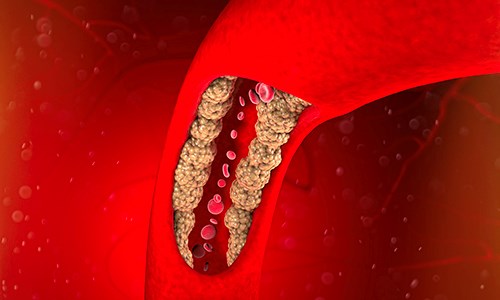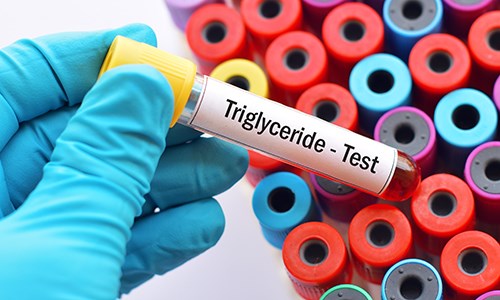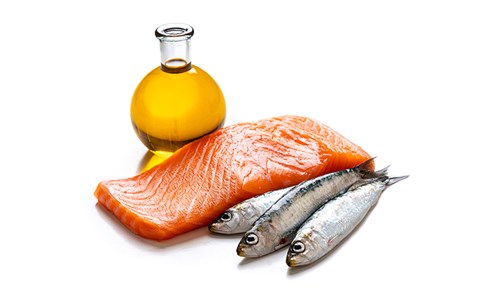Triglycerides – the unknown blood fats
2022-09-30
While most people are aware of the risks of high cholesterol levels and their link to cardiovascular diseases, fewer individuals understand the importance of managing another class of "dangerous" blood fats – triglycerides. At Lipigon, there's optimism that a promising drug candidate can save lives by reducing triglyceride levels.

Heart and vascular diseases are among the most common illnesses in adults and the leading cause of death in Sweden and abroad. One of the major risk factors behind heart and vascular disease is high blood fats.
"When we discuss high blood fat levels, we're referring to both cholesterol and triglycerides. Most people have a good understanding of cholesterol, but triglycerides have often taken a back seat," explains Gunilla Olivecrona.
Gunilla Olivecrona, co-founder of the research and drug development company Lipigon, has dedicated over 45 years to lipid research, specifically blood fats. She holds the position of senior professor at the Department of Medical Biosciences at Umeå University and is globally recognized for her contributions to the field.
For a few years, Lipigon has been developing a drug candidate that lowers triglyceride levels. This work is based on more than 45 years of research by Gunilla Olivecrona and her husband, Thomas Olivecrona, at Umeå University.
The selected candidate compound operates by enhancing the activity of the enzyme responsible for breaking down triglycerides, thereby facilitating their rapid absorption from the bloodstream. This drug candidate, Lipisense®, entered clinical trials in the spring of 2022.

Fats Are Vital – but in Moderate Amounts
So, what are high blood fats, and why are they dangerous?
Fats are essential for human life. When we eat, fats are broken down into tiny particles and transported into the bloodstream to provide energy to the body's organs and muscles. Fats also help build cells and some hormones.
However, when we consume excessive amounts of fats and lead sedentary lifestyles, our blood fat levels can soar up. Genetic factors can also contribute to this condition. Elevated blood fats result in the accumulation of fat within arteries, leading to the formation of insoluble deposits known as "plaque." These plaques coalesce and crystallize within blood vessels.
"It doesn't take much imagination to understand that these plaques can damage the artery wall by creating small wounds. When these wounds heal, blood clots are formed, which can dislodge and block blood vessels in the heart or lungs. The plaques themselves also cause narrowing of the blood vessels, reduced blood flow, which can lead to shortness of breath and palpitations," says Gunilla Olivecrona.
Excess Fat Persists in the Blood
After a meal, fats enter the bloodstream and travel through the circulatory system to the places where they are needed. However, fats are not water-soluble, so they need to be transported enclosed by a protein shell and are called lipoproteins.
In the blood, there are primarily two types of fats: cholesterol and the less-familiar triglycerides.
Cholesterol's principal roles are cell building and hormone production. In the blood, cholesterol is packaged into various types of lipoproteins, such as LDL, the "bad" cholesterol that forms as a byproduct of triglyceride transport in the blood, and HDL, the "good" cholesterol that transports excess cholesterol from the rest of the body back to the liver.
"Cholesterol is also found in the large lipoproteins that transport triglycerides we get from our diet or that the liver produces," says Gunilla Olivecrona.
Triglycerides serve as an energy source in the body. They are taken up from the blood and used directly for energy or can be stored in the body as an energy reserve to be released when needed. However, if there is an excessive supply of blood fats, triglycerides cannot be absorbed and used at a normal rate, leading to elevated triglyceride levels.
"This is the process that leads to atherosclerosis, also known as arteriosclerosis, and cardiovascular diseases," says Gunilla Olivecrona.
Elevated triglyceride levels can also lead to acute pancreatitis, a sudden inflammation of the pancreas. While this condition is painful and potentially life-threatening, it fortunately remains relatively rare.
The Overlooked Triglycerides
For many years, research has focused on developing cholesterol-lowering drugs, and today there are effective medications, such as statins, which inhibit the production of cholesterol in the body.
Over the past three decades, statins have represented the standard treatment for high blood fats. At one point, Lipitor, a statin, stood as the world's best-selling drug, with peak sales reaching nearly USD 13 billion in 2006. Nevertheless, despite statins' success in mitigating cardiovascular disease risk, a substantial portion of the population continues to suffer from residual ailments, in part due to elevated triglyceride levels and reduced HDL levels.

"In fact, only a third of all cases of cardiovascular disease are prevented today, even though patients have often managed to lower their LDL levels to the point where they should no longer pose a risk," says Gunilla Olivecrona.
Hence, there is a significant market for a new triglyceride-lowering drug.
What would it mean if Lipisense® makes it all the way to the finish line and works as well as you hope?
"It would be an immensely gratifying achievement for us and hold tremendous potential for large patient populations. We would realize our longstanding goal – to alleviate suffering and save lives. Initially, we are focusing on less common, rare diseases, but if everything goes well, this is a medication that could be of great assistance to millions of people. Statins have been the most used and sold medications in the world for a long time. This underscores the vast scope of the market."
Read more about Lipigon's projects:
P1 Lipisense
P2 Lipodystrophy
P3 Dyslipidemia
P4 CAP

Gunilla's Tips for Lowering Triglycerides:
1. Get moving! Physical activity engages your muscles, which consume energy. It's an effective way to clear your blood of triglycerides.
2. Avoid alcohol. Alcohol increases triglycerides.
3. Maintain a balanced diet and manage your weight: Excess weight is often linked to elevated triglyceride levels.
4. Choose the right fats. The type and quantity of fat in your diet affect triglycerides. Opt for unsaturated fats from plant sources and fish and seafood, as they increase the good HDL cholesterol. Fats that contain omega-3 can also lower triglycerides and the bad LDL cholesterol. Use vegetable oils like rapeseed and olive oil, and include plenty of avocados, nuts, and fatty fish, such as salmon, mackerel, and herring.
5. Cut down on sugar and fast carbohydrates. It's easy to consume more calories than you burn, which can lead to overweight. The result can be increased triglyceride levels in the blood. Instead, consume more slow carbohydrates like whole-grain bread and oats, along with vegetables that are riche in fiber, like cabbage and legumes.